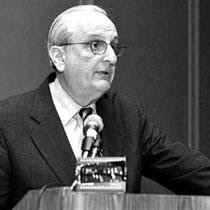
Dr. Judah Folkman was a rising star with several publications and patents on anti-angiogenisis factors. The problem was that no one was able to reproduce his results. From his book "Dr. Folkmans War":
Soon after he began shipping endostatin to researchers around the country, Folkman heard that the drug had become inactive by the time it got to some of the laboratories... The recipients reported that the drugs were having little or no effect on cancer-bearing animals. Folkman was alarmed, needless to say. Any such report carries with it the suggestion that somehow the original research was wrong, or worse, that the results had been embellished.
Folkman and his colleagues soon noticed that the problem seemed to be only with batches that were shipped to distant places. The endostatin being tested in local labs was fine. So the problem, in all likelihood, was in the shipping.Like many drugs or biomedical compounds, the endostatin was being frozen in small plastic vials, packed in dry ice, and was sent out via Fed Ex. Folkman began doing experiments to figure out what might be going wrong. First, they found that the problem was not caused by freezing. When they froze a vial of endostatin, then thawed it, the drug worked normally. So how could transportation hurt it? Hoping to find clues they packed a sample in dry ice, stowed it in the trunk of a car, and drove around Boston with it. Sure enough, when they brought it back into the lab and thawed it, the endostatin didn't work. But why?"
The answer they later came up with was that the dry ice that the drug was packed in bathed the solution in carbon dioxide that had seeped through the vials. The result was the lowering of the pH that inactivated the drug. The solution to the problem was to put the drug into glass vials for shipping. The results of this experiment were not covered in the book.
No comments:
Post a Comment